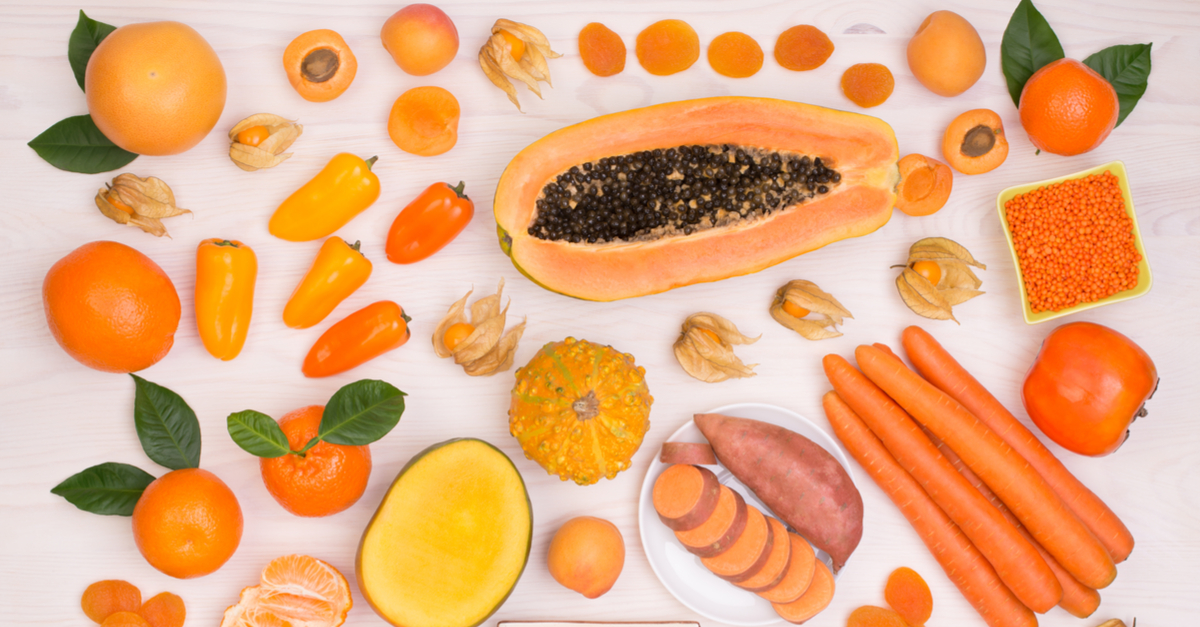
noun
- any of three yellow or orange fat-soluble pigments having the formula C40H56, found in many plants, especially carrots, and transformed to vitamin A in the liver; provitamin A.
noun
- any of four orange-red isomers of an unsaturated hydrocarbon present in many plants (β-carotene is the orange pigment of carrots) and converted to vitamin A in the liver. Formula: C 40 H 56
hydrocarbon found in carrots and other plants, 1861, from German carotin, coined 1831 by German chemist H.W.F. Wackenroder (1789-1854) from Latin carota “carrot” (see carrot) + German form of chemical suffix -ine (2), denoting a hydrocarbon.
n.
- An orange-yellow to red crystalline pigment that exists in three isomeric forms designated alpha, beta, and gamma; it is converted to vitamin A in the liver and is found in animal tissue and certain plants, such as carrots and squash.
- Any of various organic compounds that occur as orange-yellow to red pigments in many plants and in animal tissue. In plant leaves, carotenes aid in the absorption of light energy by transferring the energy to chlorophyll and act as antioxidants protecting chlorophyll from damage by oxidation. In animals, carotenes are converted to vitamin A primarily in the liver. They are members of the carotenoid family of compounds and give plants such as carrots, pumpkins, and dandelions their characteristic color. Chemical formula: C40H56. See also xanthophyll.
 Liberal Dictionary English Dictionary
Liberal Dictionary English Dictionary


